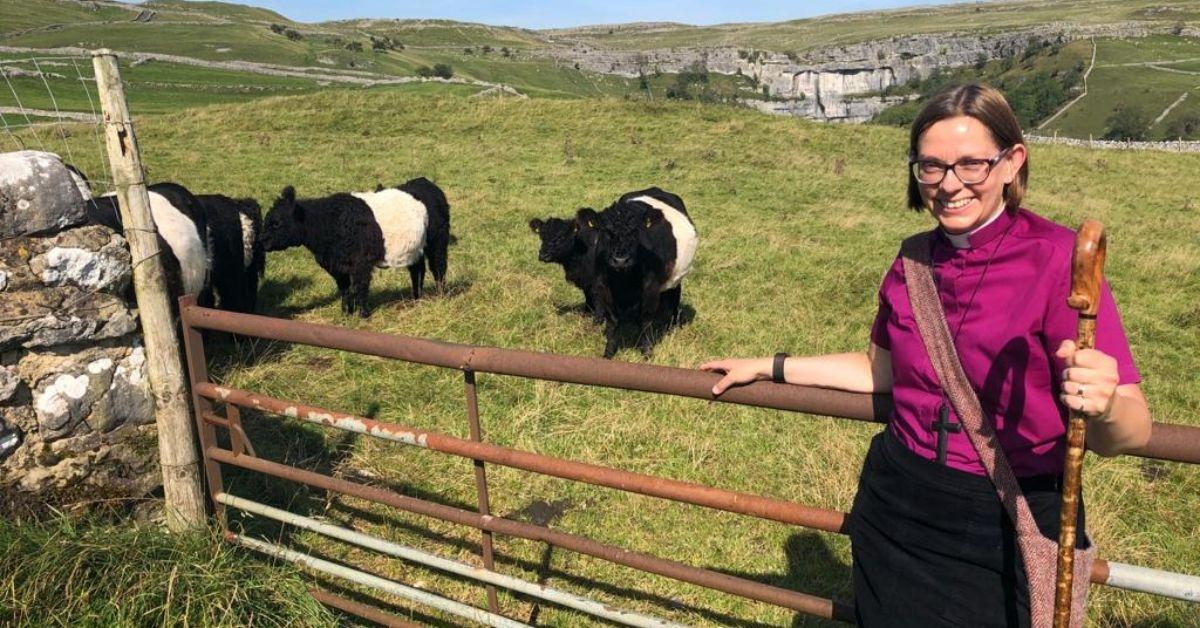Subscribe to trusted local news
In a time of both misinformation and too much information, quality journalism is more crucial than ever. By subscribing, you can help us get the story right.
- Subscription costs less than £1 a week with an annual plan.
Already a subscriber? Log in here.
10
Jan 2021
Bishop of Ripon: 'Farmers give us hope on Plough Sunday'

On Plough Sunday, the Bishop of Ripon, the Right Rev Dr Helen-Ann Hartley, reflects on how the traditions of the day can be maintained, despite not being able to gather at the Cathedral.
When despair for the world grows in me
and I wake in the night at the least sound
in fear of what my life and my children’s lives may be,
I go and lie down where the wood drake
rests in his beauty on the water, and the green heron feeds.
I come into the peace of wild things
who do not tax their lives with forethought
of grief. I come into the presence of still water.
And I feel above me the day-blind stars
waiting with their light. For a time
I rest in the grace of the world, and am free.
Words by the North American writer and farmer, Wendell Berry.
Well, usually on Plough Sunday I would have been in Ripon Cathedral blessing the plough and setting the mark for the agricultural year ahead. While it’s true that many farmers these days are exponents of the no-till method which is better for the ground, the plough remains an important symbol of our agricultural heritage.
One of the features of this extended pandemic crisis has been a reawakening of connection to land and to asking questions about where our food comes from? These are not new questions, and in many ways they were part of the Brexit landscape way before covid-19 and Zoom became part of our everyday language.
This new year sees us in a post-Brexit landscape but locked-down again. I have just spent a day taking part in the online 2021 Oxford Farming Conference. The theme of this year was ‘Business as Unusual’, a nod to the tension between recognising that a lot has changed, with the desire to get back to normal. In her opening remarks for the conference, the chairman Sally Williams reminded us that in the midst of so much change, ‘farmers kept on farming’. Many people in agriculture that I have spoken with in recent weeks have expressed concern about the virus yes, but confidence in the resilience of people to weather the storm. For all the emphasis on ‘social distancing’ many’s a farmer who has remarked ‘well we are pretty good at social distancing, it’s what we do most days’. But it is noticeable nonetheless that one of the sessions at this year’s OFC was again dedicated to issues of mental health in farming.
Read more:
- The Bishop writes at the end of 2020, reflecting on a year like no other.
- Ripon farming sisters reflect on a difficult year for their industry.
A couple of weeks ago, I took part in the first Zoom session of a new global book club called ‘Fieldwork’. Hosted by the NFU’s Adam Bedford (who himself participated in the Ripon Cathedral Plough Sunday service in 2018), the book under discussion was English Pastoral by Cumbrian shepherd James Rebanks.
It was fascinating to hear James talk about his book, but it was another book he mentioned that caught my interest; a book published in 1940 by Thomas Firbank called I Bought A Mountain. In this book, Firbank describes his purchase, aged 21, of a 2400 acre sheep farm in North Wales. James Rebanks mentioned it because it is a book that essentially describes someone from a non-farming perspective learning about rural life from the people he encountered. The book itself ends with the start of the Second World War, and Firbank’s enlisting to fight in the Coldstream Guards. I mention this as a reminder that we aren’t the first or only generation to face life-changing circumstances. We don’t know yet what a post-covid world will look like; it’s rather more certain that we will need to learn to live with the virus. The language of battle and defeat is distinctly unhelpful.
It is my strong belief that our rural communities are keepers of a narrative that speaks of the greatness of the small (to quote words by the Iona community member John Bell), as well as guardians of the treasures and riches of our land, our earth. After all, the word human comes from the Latin word ‘humus’, meaning earth or ground. I think that plough Sunday points us to that reality; of our own mortality but ultimately of new birth, of possibility and hope grounded in the knowledge that Spring surely does follow Winter. God the Creator is bound up in all of that; God who experienced human failure and defeat, and yet who rose again and who is present with us now in the blazing fire of the Holy Spirit, as sure as the spectacular skies of Winter sunset and sunrise.
Blessed are you, Lord God of all creation:
for in your abundant care you have given us fertile land,
rich soil, the seasons in their courses.
You provide seed for sowing, water, light and warmth
to bring forth the miracle of growth.
You give us skill to work the land,
to prepare and nourish it, that it may be fruitful.
By your blessing,
let this plough be a sign of all that you promise to us.
Prosper the work of our hands,
and provide abundant crops for your people to share.
Blessed be God, Father, Son and Holy Spirit.
Blessed be God for ever.
God speed the plough.
God speed the plough.
Amen.
0